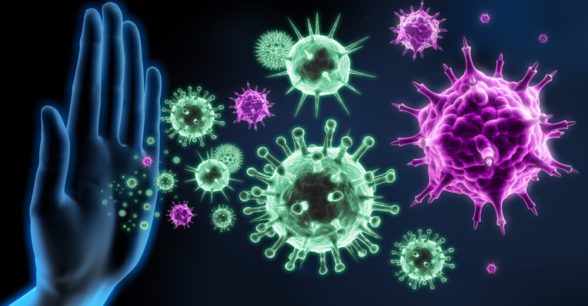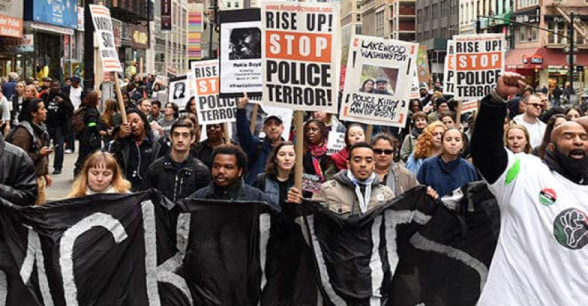Disability Day of Mourning: We Are Not Burdens
Trigger warning: this post discusses violence against and murder of disabled people.
His name was Marcus Fiesel.
He was a smiling three-year-old boy who loved bubbles, flowers, and Bob the Builder. Like all children, he deserved to be protected from harm, but his mother was struggling. Her boyfriend was beating her and her home was filthy and infested with fleas. Marcus had mysterious cuts and bruises and when the police brought him home after finding him wandering in traffic, his mother broke down and told the officers that she wasn’t coping. She handed all three of her children over to the state — a heart-breaking act of love meant to give them a life better than she had to offer.
For Marcus, that choice turned out to be deadly.
His mother had been poor, overwhelmed, and struggling, but loved her children so much that she made a mother’s ultimate sacrifice to save them. But the foster family Marcus ended up with was dangerous and unstable and appropriate background checks had never been conducted. Marcus was an energetic Autistic child well known to be “a handful,” but also well loved by those around him. A next-door neighbor had called Marcus, “an awesome little guy.” His new foster family did not have the patience for his energy and curiosity so they wrapped him in blankets and duct tape and propped him in a closet all weekend. Marcus’ death from overheating and asphyxiation must have been a slow torture.
Marcus would be 14 years old today if he had not been murdered.
His death was my introduction to a gruesome pattern I’ve watched play out again and again over the years since. Marcus was the first Autistic I noticed who was murdered by caregivers, but he was far from being the last. Not a month goes by that I don’t hear of at least one Autistic person being murdered by their parent or caregiver.
Gassed. Decapitated. Shot. Bludgeoned. Thrown into the sea or off a bridge or drowned in a creek. Fed bleach or other poisons. Strangled or suffocated. Chained to the bed and left to burn to death or chained to a chair and left to freeze. Slashed or stabbed multiple times. Rarely, a would-be victim survives a murder attempt, the most famous being Issy Stapleton whose mother locked her in the car with burning charcoal grills in an attempt to suffocate her.
It’s not just children — disabled adults are killed by their parents or caregivers as well. And it’s not just Autistics — in the last five years, over 400 people with disabilities of all kinds have been killed by their parents.
The Autistic community began by mourning our dead and then, noticing that it is a shared sorrow, joined with the larger disability community in 2012 to mourn all the victims of filicide within our Disabled family. The Disability Community Day of Mourning calls us to come together to share our grief and anger with vigils every March 1st where the names of the dead are read and speakers call on the world to respect our humanity and protect us in our vulnerability.
Too often, the public chooses to condone the murders of disabled people by empathizing with the murderers, underlining the false notion that we are a burden to our families, chastising others not to judge those parents if we haven’t “walked in their shoes.”
But what of the unfair judgment of the lives of disabled people? Marcus Fiesel was “a handful,” but so is any inquisitive three-year-old child. We are not burdens. We are human beings who deserve a fundamental respect for our humanity. Murdering one’s own child is never excusable. It is shocking that anyone would ever try to excuse such a heinous act. These vile crimes will continue until society fully awakens to the truth that disability rights are human rights.
How many more will die before the world fully acknowledges our humanity and welcomes us as the valued and valuable members of society we are?
About Rooted In Rights
Rooted in Rights exists to amplify the perspectives of the disability community. Blog posts and storyteller videos that we publish and content we re-share on social media do not necessarily reflect the opinions or values of Rooted in Rights nor indicate an endorsement of a program or service by Rooted in Rights. We respect and aim to reflect the diversity of opinions and experiences of the disability community. Rooted in Rights seeks to highlight discussions, not direct them. Learn more about Rooted In Rights




Dear Sparrow,
It is heartbreaking to me as a parent to think of my beautiful daughter Rose with autism, being abused in foster care or by a caregiver when I am no longer here. We are helping her to be as independent as possible, but I know we can’t rely on the kindness of strangers or even of busy neighbors. We struggle every day to do your best and to help her grow and thrive. Sometimes parents, like the mother of Marcus, need help. Unfortunately, Marcus didn’t get a better life. I hope you understand that the vast majority of parents love their children and try very hard. Keep on speaking out. I wish you all the best, Cynthia
Cynthia,
That is part of what is so heart-breaking about Marcus’ case: his mother loved him so much she made the sacrifice of giving him up. We need to pay attention to foster care, schools (look up Judge Rotenberg Center sometime!), therapists, day care — everyone who cares for children. The stigma of autism and other disabilities makes children extra vulnerable.
We all need to work to re-shape the world into one your daughter can be safe in. We need to wake people up to the need to protect *everyone’s* human rights. Disability rights are human rights.
Thank you for helping to change the world out of love for your daughter. Everything you do for her helps so many others you may never meet. Small stones make big ripples.
Thank you for this chilling overview exposing the fact that eugenics is alive and well and continues to justifying murderous abuse of vulnerable people.
We cannot challenge the myths, stigma and discrimination that underpins the way people see and think about each other, enough.